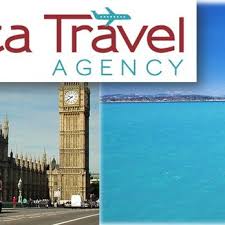The Benefits of Business Travel
Business travel plays a crucial role in the success of companies worldwide. While it may sometimes be seen as a necessary inconvenience, business travel offers a multitude of benefits that can positively impact both employees and organizations.
Face-to-Face Communication
One of the most significant advantages of business travel is the opportunity for face-to-face communication. In an increasingly digital world, nothing can replace the value of meeting clients, partners, and colleagues in person. Building relationships and trust is often easier when done in real life rather than through emails or video calls.
Networking Opportunities
Business travel provides excellent networking opportunities that can lead to new partnerships, collaborations, and business ventures. Attending conferences, trade shows, and industry events allows professionals to connect with like-minded individuals and expand their professional network.
Cultural Understanding
Traveling for business exposes individuals to different cultures, customs, and ways of doing business. This cultural immersion not only broadens one’s perspective but also fosters cultural understanding and sensitivity. It enables professionals to navigate diverse environments with ease and adaptability.
Personal Development
Business travel presents challenges that encourage personal growth and development. From navigating unfamiliar cities to adapting to new work environments, travelers gain valuable skills such as problem-solving, adaptability, and resilience. These experiences contribute to personal growth both professionally and personally.
Enhanced Productivity
Contrary to popular belief, business travel can enhance productivity rather than hinder it. Being out of the office environment can spark creativity, provide new perspectives on projects, and offer uninterrupted time for focused work. The change of scenery can reenergize employees and boost their productivity levels upon returning to the office.
In conclusion, business travel offers numerous benefits that extend beyond the confines of work obligations. From fostering relationships to expanding horizons, business travel is an invaluable investment in both professional development and organizational success.
5 Benefits of Business Travel: Building Relationships, Networking, and Personal Growth
- Facilitates face-to-face communication for building strong relationships.
- Provides networking opportunities to expand professional connections.
- Promotes cultural understanding through exposure to diverse environments.
- Encourages personal development by fostering adaptability and problem-solving skills.
- Enhances productivity by offering a change of scenery for focused work.
7 Drawbacks of Business Travel: Balancing Costs, Stress, and Personal Well-being
- Disruption of Work-Life Balance
- Physical and Mental Exhaustion
- Time Away from Family and Loved Ones
- Jet Lag and Sleep Disruptions
- Travel-related Stress (Delays, Cancellations)
- Expense of Travel (Accommodation, Meals, Transportation)
- Environmental Impact of Air Travel
Facilitates face-to-face communication for building strong relationships.
Business travel facilitates face-to-face communication, which is essential for building strong relationships in the business world. Meeting clients, partners, and colleagues in person allows for more meaningful interactions, fostering trust and rapport that may be challenging to establish through virtual means. Face-to-face meetings provide opportunities to read body language, build personal connections, and communicate more effectively, ultimately strengthening relationships and laying the foundation for successful collaborations and partnerships.
Provides networking opportunities to expand professional connections.
Business travel presents invaluable networking opportunities that allow professionals to expand their professional connections and build meaningful relationships. Attending conferences, industry events, and client meetings in person creates a platform for individuals to engage with like-minded peers, potential partners, and industry leaders. These face-to-face interactions not only facilitate the exchange of ideas and knowledge but also open doors to new collaborations and business opportunities. By expanding their network through business travel, professionals can enhance their career prospects, gain valuable insights, and establish long-lasting connections that can benefit both their personal growth and organizational success.
Promotes cultural understanding through exposure to diverse environments.
Business travel serves as a powerful catalyst for promoting cultural understanding by immersing individuals in diverse environments. Experiencing different cultures firsthand allows professionals to broaden their perspectives, gain insights into varying customs and traditions, and develop a deeper appreciation for global diversity. By engaging with people from different backgrounds and navigating unfamiliar settings, business travelers cultivate empathy, tolerance, and cross-cultural communication skills that are essential in today’s interconnected world.
Encourages personal development by fostering adaptability and problem-solving skills.
Business travel serves as a catalyst for personal development by nurturing adaptability and honing problem-solving skills. When professionals navigate unfamiliar environments, they are compelled to think on their feet, adapt to new circumstances, and find creative solutions to challenges that arise. This hands-on experience not only enhances their ability to thrive in diverse situations but also cultivates resilience and resourcefulness, contributing to their overall growth and development both in the workplace and beyond.
Enhances productivity by offering a change of scenery for focused work.
Business travel enhances productivity by providing a change of scenery that allows professionals to engage in focused work. Stepping away from the familiar office environment can spark creativity, offer new perspectives on projects, and provide uninterrupted time for concentrated tasks. The fresh surroundings and different work settings during business trips can reenergize individuals, helping them approach their work with renewed focus and motivation. This change of scenery often leads to increased productivity and efficiency, benefiting both the individual and the organization.
Disruption of Work-Life Balance
The disruption of work-life balance is a significant con associated with business travel. Constantly being on the move and away from home can lead to feelings of isolation, stress, and burnout as individuals struggle to juggle professional responsibilities with personal well-being. The blurred boundaries between work and personal life while traveling can make it challenging to maintain relationships, hobbies, and self-care routines, ultimately impacting overall mental and physical health. Finding ways to prioritize self-care and establish boundaries becomes crucial in mitigating the negative effects of this disruption on work-life balance.
Physical and Mental Exhaustion
One significant drawback of business travel is the toll it can take on individuals’ physical and mental well-being. Constantly being on the go, dealing with jet lag, irregular sleep patterns, and long hours of work can lead to physical exhaustion. Moreover, the stress of meeting tight deadlines, navigating unfamiliar locations, and being away from home can contribute to mental fatigue and burnout. This constant cycle of physical and mental strain can negatively impact an individual’s overall health and productivity in the long run.
Time Away from Family and Loved Ones
One significant drawback of business travel is the time spent away from family and loved ones. Being away from home frequently can lead to feelings of loneliness, missing out on important family events, and creating strain on personal relationships. The absence of daily interactions and shared experiences with family members can be challenging, impacting both the traveler and their loved ones emotionally. Balancing work commitments with maintaining strong connections with family members becomes a delicate juggling act for those who frequently engage in business travel.
Jet Lag and Sleep Disruptions
Jet lag and sleep disruptions are common drawbacks of business travel that can significantly impact the well-being and productivity of travelers. Crossing multiple time zones disrupts the body’s internal clock, leading to fatigue, difficulty concentrating, and overall feelings of malaise. The struggle to adjust to new sleep schedules can result in decreased performance during important meetings or presentations, affecting the quality of work and decision-making abilities. Managing jet lag and prioritizing rest becomes essential for business travelers to maintain their health and effectiveness while on the road.
Travel-related Stress (Delays, Cancellations)
Travel-related stress, stemming from delays and cancellations, is a significant con of business travel that can take a toll on individuals. The uncertainty and unpredictability of travel schedules can lead to heightened anxiety, frustration, and inconvenience for business travelers. Delays and cancellations not only disrupt planned meetings and itineraries but also disrupt work-life balance, as travelers may find themselves stranded in unfamiliar locations or forced to rearrange their plans at the last minute. Managing the stress caused by travel disruptions is essential for maintaining productivity and well-being during business trips.
Expense of Travel (Accommodation, Meals, Transportation)
The expense of business travel, including accommodation, meals, and transportation, can pose a significant challenge for companies and employees alike. The costs associated with lodging in hotels, dining out for meals, and arranging transportation can quickly add up and strain the budget allocated for business trips. Moreover, fluctuating prices in the travel industry can make it difficult to predict and control expenses effectively. The financial burden of business travel expenses may lead organizations to seek cost-cutting measures or limit the frequency of trips, potentially impacting opportunities for face-to-face interactions and professional development.
Environmental Impact of Air Travel
The environmental impact of air travel is a significant con associated with business travel. The carbon emissions produced by airplanes contribute to climate change and air pollution, posing a threat to the environment and public health. The reliance on fossil fuels for air travel accelerates global warming, leading to adverse effects on ecosystems and biodiversity. As businesses strive to become more sustainable, addressing the environmental consequences of frequent air travel becomes crucial in mitigating the negative impact on the planet.






